#Alexei Alexandrovich Karenin
Text
Political Parties in Anna Karenina
Anna Karenina by Leo Tolstoy was published in 1878 and takes place in 1874 towards the end of Imperial Russia.(VII) The translation referred to in this essay is by Richard Pevear and Larissa Volokhonsky, this translation does not differ that much from other translations of the text and is a reliable and accurate representation of the story. In the book, Alexander II is the Tsar during this time period, and the Intelligentsia are active in secret societies focusing on anarchism and socialism. Throughout this time period at universities and in cities there are people who are left wing radicals, people who believe in communism, and there are also conservative nationalists. They often debated on matters of economy, government, class, women’s rights, and Russian culture. This novel was written during Tolstoy’s moral crisis so the debate in ideologies represent what he was thinking in real life. Anna Karenina shows characters from all of these political ideologies. In addition to the romance plot, how people debated between liberal and conservative ideologies is shown by the characters. Tolstoy held conservative views and this book shows how he saw the radical intelligentsia destroying families. (IX) While the main plot is mostly the focus of the book, there are many instances of conversations and small details that show western liberals, communism, and conservativism throughout this novel.
Vronsky is an important character throughout the novel because he is an example of a western liberal. He symbolizes the radical intelligentsia and is what causes Anna to divorce her husband. This divorce is symbolic of radicals destroying traditional family values and deviating from their culture. Vronsky shows his political stance and scorn for Russian culture throughout the book and shows a preference for western liberalism. “As I’ve come to know him here, he’s both cultivated and very intelligent. He’s a man who will go far.”(39)This is how the character Vronsky is introduced, and he will eventually be the reason why Anna’s perfect marriage and family ends in divorce. He is a part of the radical intelligentsia. Immediately after this Tolstoy shows what could be him own opinion on Vronsky when he writes, “Levin frowned and kept silent.”(39) This shows that Vronsky was not liked from the start. Another way Vronsky shows his liberal views is through language. His preference for western language is shown when Tolstoy writes, “he went on in French, as he always did, avoiding the impossible coldness of formal Russian and the danger of the informal.”(187) Vronsky often speaks in French, as well as several other radical characters, showing a preference for western culture. This is an example of the actions of someone in the radical intelligentsia. His rejection of Russian culture is shown by his language preference. He continues to talk in French throughout the books and mentions again how he prefers the language when Tolstoy writes, “He wrote a without addressing her and in French, using the plural pronoun ‘you,’ which does not have that character of coldness which it has in Russian.”(283) This again shows a preference for language favored by western liberals and educated intelligentsia. Vronsky shows Western Liberal views throughout the novel through his symbolic role representing the view, his dislike for traditional Russian culture, and his continued use of the French language.
Anna Karenina is also a character that shows western liberalism. Her journey from conservitive to liberal is shown negatively and her views lead to her death at the end of the novel. There is one scene in the novel that stood out as the moment Anna becomes liberal. Anna is married to Alexei Alexandrovich Karenin who is very strict and traditional. This scene is her realizing that she is in love with Vronsky, who is liberal and likes the west a lot. This scene starts with Anna holding a red bag getting on a train to go meet Vronsky. She is reading a novel. She is reflection on this novel and Tolstoy writes, “The hero of the novel was already beginning to achieve his English happiness, a baronetcy and an estate, and Anna wished to go with him to this estate, when suddenly she felt that he must be ashamed and that she was ashamed of the same thing. But what was he ashamed of? ‘What am I ashamed of?’ she asked herself in offending astonishment.” (100) She is reading the English novel and realizes that she is not happy with her life or with her life in Russian culture. She continues and thinks about Vronsky at the ball, Vronsky is symbolic of Radical Intelligentsia. Her reflection continues and then the novel states, “then a red fire blinded her eyes.”(100) The red is symbolic of radical left socialism and communism. Red symbolizes communism and radical anarchist movements like that of the radical intelligentsia at the end of the 19th century, so it makes sense for red to symbolize Anna becoming a Radical. She is seeing the world in a radical way now and this scene is one of the most important in the book because it shows a shift in her ideology. Anna shows why people in Russia were becoming liberals and supporting revolutions. Her journey throughout the novel shows the benefits and costs of western liberal ideology in Russian society.
Throughout the novel characters show their dislike for liberals and the radical intelligentsia and hold conservative Russian views. One example is when Levin says, “’My opinion,’ answered Levin, ‘is simply that these turning tables prov that our so-called educated society is no higher than the muzhiks. They believe in the evil eye, and wicked spells, and love potions.’”(52) This is a critique of the radical intelligentsia and people who idolized western culture, spiritualism in the west was an important part of culture in high society and among educated people at universities. Major figures in western culture like Oscar Wilde and Aurther Conan Doyle were holding seances and talking to ghosts during this time period. This is meant to show that they are not that smart and should not be taken seriously if talking to ghosts and making potions. Another example is when Tolstoy writes, “however good that life of simplicity and labour may be, I cannot go back to it.” (278) This is an example or reject collective government and having no classes. This is Levin explaining that he needs high society and likes being in the upper class. He denounces his liberal brother Nikolai’s communist ideas about society. Levin is an example of a mostly conservative character in the start of the novel. Levin has a happier story because of this. Levin and Kitty’s relationship throughout the novel is much better than Anna and Vronsky and they face less tragedy. This shows the author’s slightly conservative bias.
Communism is shown throughout the novel through the character Nikolai. One example is when Nikolai says, “You know that capital oppresses the worker – the workers in our country, muzhiks, bear all the burden of labour, and their position is such that, however much they work, they can never get out of their brutish situation.”(88) This is an example of his opinion against classes and that he thinks there should be collectivism in the economy. He thinks the working class is oppressed, this is communist. Continuing this thought Nikolai then says, “And so we’re organizing a metal-working association, in which all production and profit and, above all, the tools of production, will be common property.”(88) This demonstrates his communist opinions because it describes an ideal communist factory. A metaphorical reference to his communist ideologies is shown when he is described as having “red patches” on his cheeks. (88) He is talking about the factories and unfair labor and the red on his face is meant to show his political opinion symbolically. Nikolai supports communism and talks about it’s ideology throughout the novel through his ideas about a collective economy and inequality between classes.
Anna Karenina by Leo Tolstoy shows many examples of the politics of the early 1870s in Russia. Western Liberal views, Conservative Nationalists, and Communists are all shown using characters like Vronsky, Levin, Anna, and Nikolai.
#literature#books#books and reading#quotes#dark academia#anna karenina#lev tolstoy#leo tolstoy#russian literature#classical literature
4 notes
·
View notes
Text
Alexei Alexandrovich Karenin deserved better
#i cant hate any characters#i pity all three#but i pity karenin the most#he is the kindest person😭😭😭#anna is kinda getting on my nerves but#i know why she is like that😞#anna karenina#russian literature#karenin#alexei alexandrovich karenin#mine
56 notes
·
View notes
Note
YOURE READING ANNA KARENINA WHAT DO YOU THINK??
I'm having Troubles liking Levin = ,=
Which, I'm sure would get better as I get on, but y u p. Kitty is a dear :)
Also, Vronsky and Anna's new home is giving me the creeps..... I'm feeling sorry for Karenin at the moment, but this might not last from the way all that foreshadowing's going
>_< I really don't know it normally takes a second/third read for me to develop really really definite feelings
Oh, but Seryozha is 🥺
And it seems, up to this point, that honesty, at least, is one virtue Levin possesses, above everything else
Oblonsky is on a very slippery sliding scale between Courfeyrac-ness and Tholomyes-ness, and at the moment he's nearing the Tholomyes end >:|
#anna karenina#konstantin levin#alexei alexandrovich karenin#kitty scherbatskaya#alexei vronsky#sergei alexeyich karenin#stiva oblonsky#sorry for the inconsistent name forms in the tags#WHAT TRANSLATION AM I READING#welllllll#I don't know a thing
15 notes
·
View notes
Text
Book synopsis:
Anna Karenina by Leo Tolstoy: Don't be a ho, you will die. Most likely by suicide.
Anna: *has a good husband who's a bit boring but has an affair with Vronsky* commits suicide by walking into the way of train.
#book synopsis#anna karenina#leo tolstoy#books#synopsis#Konstantin Dmitrievich Levin#Kitty Shcherbatsky#vronsky#Alexei Alexandrovich Karenin
20 notes
·
View notes
Text
Karenin: If you cheat on me, you’ll ruin your life.
Anna: Whatever.
Anna: [cheats on Karenin and ruins her life]
Anna:
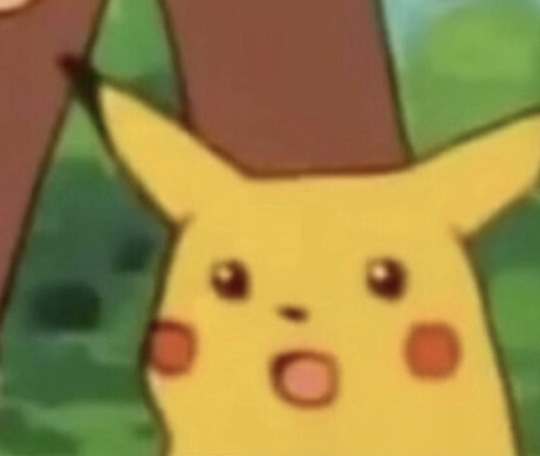
#russian lit#literature#incorrect quotes#anna karenina#anna arkadyevna karenina#alexei karenin#alexei alexandrovich karenin
72 notes
·
View notes
Quote
The quick, creaking steps of his servant, walking through the drawing room, brought him to his senses. He made a mental effort and understood that he was on the floor, and, seeing the blood on the tiger-skin and on his hand, understood that he had tried to shoot himself.
'Stupid! I missed,' he said, groping for the revolver with his hand. The revolver was close by him, but he groped for it further away. Continuing to search, he reached out on the other side and, unable to keep his balance, fell over, bleeding profusely.
The elegant servant with side-whiskers, who had complained to his acquaintances more than once about the weakness of his nerves, was so frightened when he saw his master lying on the floor that he left him bleeding profusely while he ran for help.
Leo Tolstoy, Anna Karenina (There are too many passages that are *chef’s kiss* in Anna Karenina to post, but I will anyway because no one reads this blog and I feel liberated to indulge in it).
This is the description after Vronsky tries to shoot himself (lol Vronsky, you’re so dramatic, I love it) after Anna nearly dies from her illness and we see a whole new side of Alexei Alexandrovich (the cuckolded husband) suddenly appearing to forgive Anna for her affair with Vronsky on what he thinks might be her deathbed. Vronsky is reduced to a shameful mess in Karenin’s presence, the first time he’s painfully self-aware and not shielded by his self-assured ‘rules of life’ in the book. It’s just so *chef’s kiss.* And of course, the dramatic (and heart-wrenching, and poignant) moments in the book are almost immediately followed with an incredibly funny paragraph (in this case, to show how silly Vronsky is in his drama). God, I love it. Tolstoy, Turgenev and Kafka are all actually funny. That’s why I love them
8 notes
·
View notes
Text
‘Anna Karenina’ Book Review
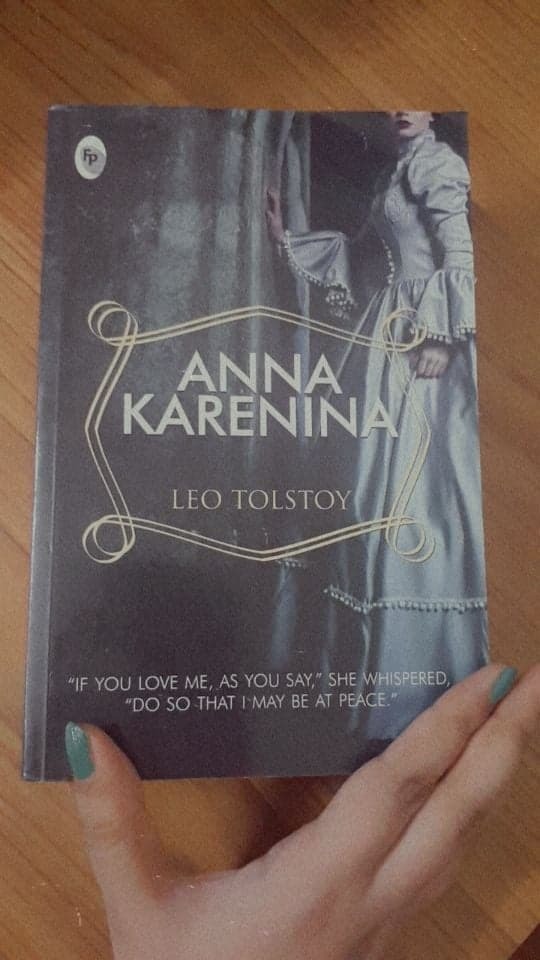
‘Anna Karenina’ is a beautiful novel. This novel is soft, simple and it is a very social novel. The upper/higher middle society of Russia has been represented very beautifully. Though the novel is quite longer but it is elaborated rhythmically.
The main story of the novel not only focuses on Anna but also on some other characters like Levin and the household of Oblonsky. But obviously Anna is the main character. From Anna’s point of view, the story shows that how human mind affects or works when one is in a miserable condition for a longer period.
And it is worth mentioning that the character Levin is also represented with much emphasis. So if we see from Levin’s point of view, it is seen that He is very self-esteemed. He values his works so much and considers every little matter carefully. He always thinks and thinks. He confuses himself in every little matter. He is always in an excited mood to find out whether he is doing right or wrong. But his life goes on like that even smoothly which he doesn’t even know himself.
I love the romance between Kitty and Levin soo much. No matter how many times Levin tries to put Kitty out of his mind, he just can’t. He loves her terribly. Levin is one of the best kinds of lovers that I will always prefer. He loves as well as respects Kitty. Eventually Kitty also realizes her secret affection for Levin. I really adore the conversation that has been taken place between Levin & Kitty while playing this chalk writing game. Kitty said “If you could forget and forgive what happened. Levin replied” I have nothing to forget and forgive, I have never ceased to love you.” These two sentences have just melted me.
I also love the character of Alexey Alexandrovich Karenin. He appears so hard and emotionless. But in real he is not at all like that. He does have a soft corner in his heart. I really fancy that part where he really cares for little Annie and how unconditionally he forgives Anna.
The miserable condition of the ladies then are also shown in the novel. Often it is seen that the husband had lost interest in their wives after some years of marriage. Such is the case of Dolly.
The whole plot has been represented in a beautiful manner. It is seen that Anna’s life becomes duller from the beginning to the end and on the other hand Kitty’s life becomes happier. And behind this there is only the event of one ball.
Sometimes I kept thinking why did the novel is named ‘Anna Karenina’? Here we can see other main character like Levin too. But I came to a conclusion that it was named so because the whole story had been created on the action of Anna’s one decision i,e to love Vronsky avoiding all the odds. It is one of the greatest novel obviously.
#anna karenina#leo tolstoy#Books and Literature#books reading#book review#books and libraries#love story#novel#art
13 notes
·
View notes
Quote
Then Perish
| Alexei Alexandrovich Karenin
2 notes
·
View notes
Text
Anna Karina - Review
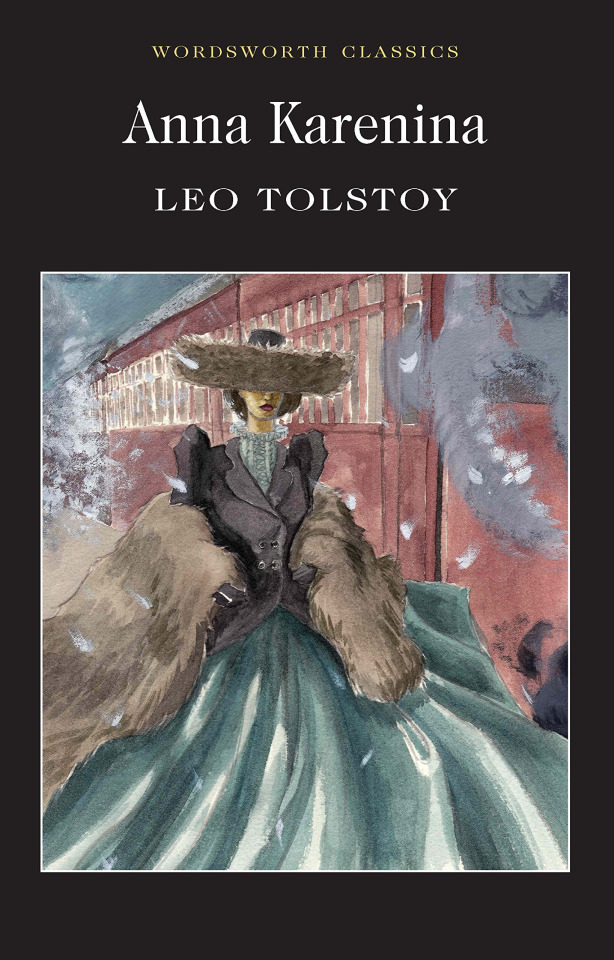
So I finished the audio book “Anna Karenina” a few days ago and here’s what I think:
Firstly, the title is misleading. About half of the novel is not about Anna or Vronsky or even Alexei Alexandrovich Karenin, the guy who was unlucky enough to marry Anna (I guess you can already tell that I'm not a big fan of hers). A huge part of the book is also about Konstantin Dmitrievich Lëvin and his love for Kitty (Princess Ekaterina Alexandrovna Shcherbatskaya), the Oblonskys, Stiva (Stepan "Stiva" Arkadyevich Oblonsky) and his wife Dolly (Darya Alexandrovna Oblonskaya, Kitty's older sister), the families of these characters ... and farming, religion and politics.
You have to know that before you read that book. You will have to deal with seemingly endless monologues about the aforementioned three topics. Are there any characters to root for? Personally, I only really liked Stiva.
And Laska, Lëvin's dog, who actually gets two or three POV chapters.
I couldn't have cared less if the others had joined Anna on her way to the train station. Except for Anna's children, I actually felt sorry for them.
But let's start from the beginning.
The writing style is beautiful and vivid and the only thing that kept me going through some parts of the book. I liked the symbolism Tolstoy works with (the race horse Frou-Frou for example) and the various point of views.
The story is actually interesting and would be even more so if it wasn't constantly interrupted by page-long discussions, inner monologues and descriptions about agriculture and other topics that have nothing to do with the story. Call me ignorant, but I didn't care about most of it.
The characters are very vivid, you get to know them through and through, which is good, unfortunately it doesn't make most of them very likeable.
Anna is extremely obnoxious to me. She's spiteful, doesn't know what she wants, she has every possibility offered to her on a silver plate but is never brave enough to take it. People could have made it much harder for her, especially her husband (at least before he met Countess Lidia Ivanovna, until that he was actually quite understanding, especially after Anna almost dying), but they didn't. She's jealous, extremely selfish, can't find anything good in anybody, not even her own daughter, she's very quick to blame all her "misery" on others and she's so full of self-pity that it's hard to stand. Towards the end, all I wanted was for her to finally go to the train station and end everybody's misery (including my own).
Vronsky is far more sympathetic than Anna and I really felt sorry for him in the end. He might have been a little immature, especially in the beginning, but compared to Anna or Lëvin he wasn't all too bad.
Konstantin Dmitrievich Lëvin is another character I can't stand. Sorry, I know he's everybody's favourite and the character Tolstoy himself identifies with, but every time I started to like him even a little he was sure to ruin it very quickly. His self-pity matches Anna's, he doesn't know what he wants (except for Kitty and when he gets her he's still not happy but jealous and distrustful), he changes his opinions and feelings about almost everything and everyone extremely quickly and is on the top of that so naive that it's hard to believe he's over 30 years old. To me he seems like an overgrown child and not like an adult, an annoying and sometimes very unfair child.
Kitty is alright, nothing special, but I mostly liked her.
As I already mentioned, the only character I really, really liked was Stiva. He brightens up every scene he's in. Yes, I know, he cheats on Dolly, but I still like him.
As to Karenin - on the one hand I feel sorry for him. Anna is extremely unfair to him while he's (although understandably unhappy) trying to be decent and respectful. What I didn't like about him was how he treats his son and how he makes him suffer for Anna's infidelity at times.
His character becomes more annoying under the influence of Countess Lidia (a horrible woman, I have no more to say about her) but I guess I understand his motivations. He didn't have anyone he could turn to and so he clings to her, to religion and to ... a weird French psychic. Seriously, after that scene I was just as dumbfounded as Stiva.
Anyway - did I enjoy "Anna Karenina"? I guess I did at times. Tolstoy's writing is extremely good, when it's actually about the characters the story is interesting, although often frustrating.
Don't get me wrong, I wouldn't have minded Tolstoy adding some information about politics and for all I care even agriculture, but these endless rants are very hard to get through.

The Audio book
I listened to the German audio book masterfully read by Ulrich Noethen.
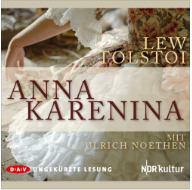
It’s unabridged and the translation (although I don’t know how accurate) seems very well-done and coherent.
The audio book, Noethen’s reading and the translation deserve no less than five stars.
#anna karenina#leo tolstoy#tolstoy#books#audio book#book#book review#review#classical books#classics#russian literature#russia#audiobook#ulrich noethen#audible
5 notes
·
View notes
Video
[Personal] 501st post (((o(*゚▽゚*)o)))♡
I was thinking about what I should write for my 501st post...
and instead of posting something 2.5D related I decided to introduce you all to my favorite takarajenne: Miya Rurika (美弥るりか)

Here are the facts:
① Miya Rurika is her stage name [her real name is Fujii Mai 藤井麻衣 (not official...)]
② born September 12 (1984) [the year is not official, it’s a ‘secret’ until she leaves takarazuka]
③ nickname ~Maimai, Miyacchi, Miya-chan~
「まいまい, みやっち, みやちゃん」
④ well known for her roles as:
Otto Kringelein [Grand Hotel (2017)]
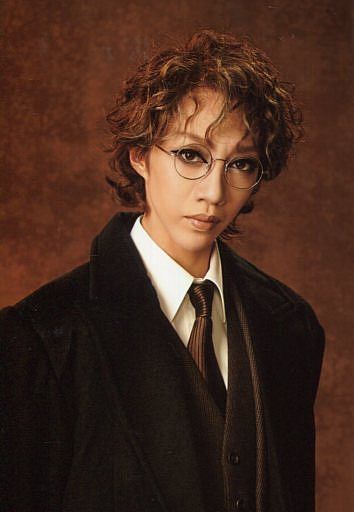
Morgane [The Legend of King Arthur (2016)]
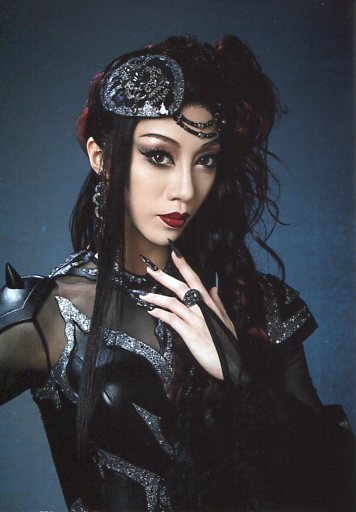
Count de Artois [1789: The Lovers of Bastille (2015)]
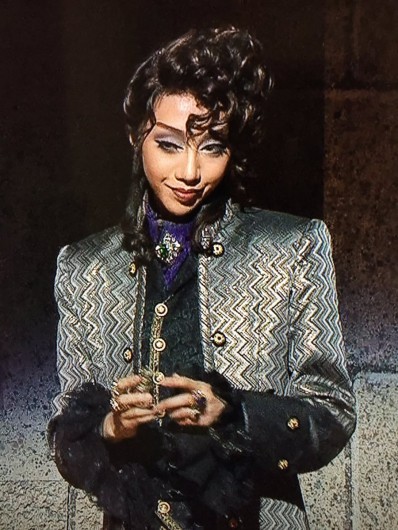
Belle Watling [Gone with the Wind (2015)]
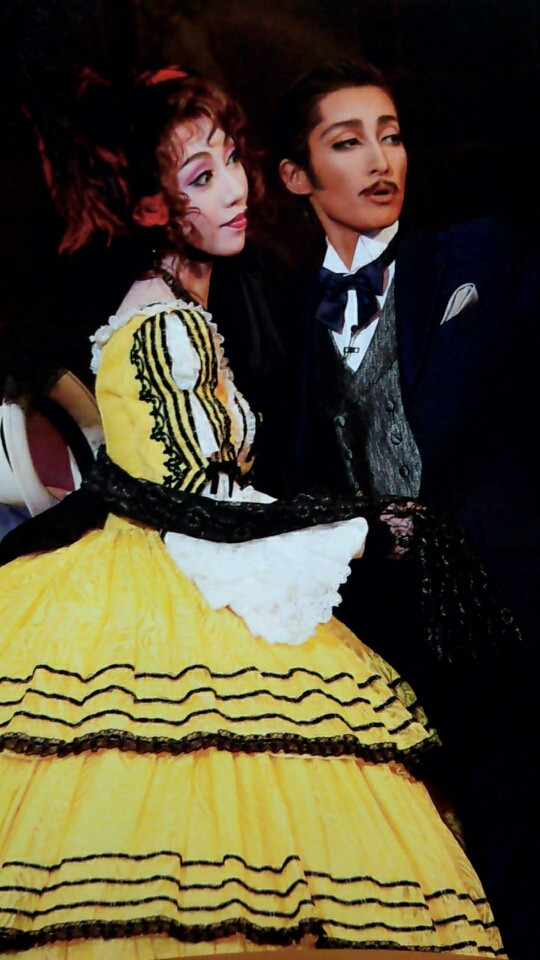
Daniel Lennox [Puck/‘Midsummer Night’s Dream’ (2014)]
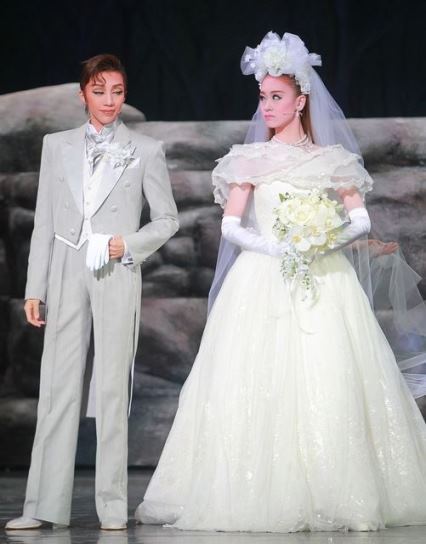
Gerald Bolingbroke / Jaqueline Carstone [Me and My Girl (2013)]
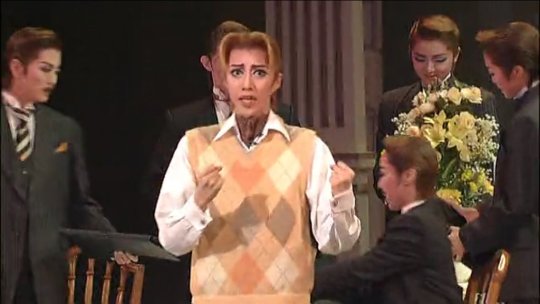
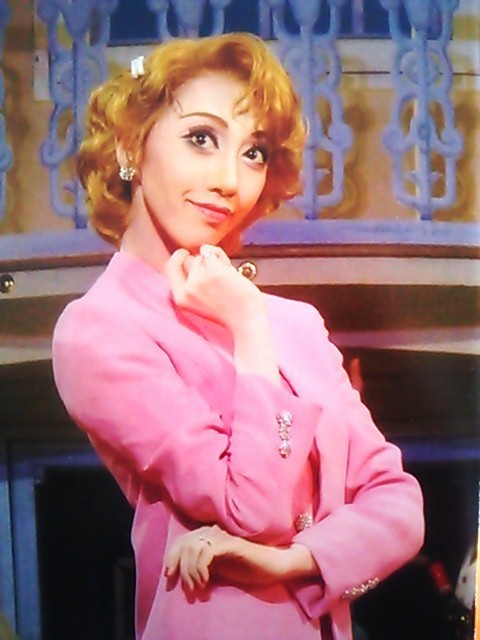
Mercutio [Romeo to Juliette (2012)]
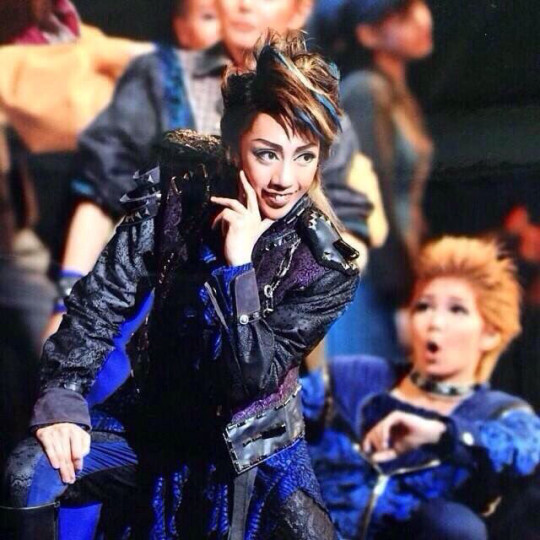
Livingston Dell [Ocean’s 11 (2011-2012)]

Shibata Kento [Meichan no Shitsuji: Watakushi no Inochi ni Kaete Omamori Itashimasu (2011)]
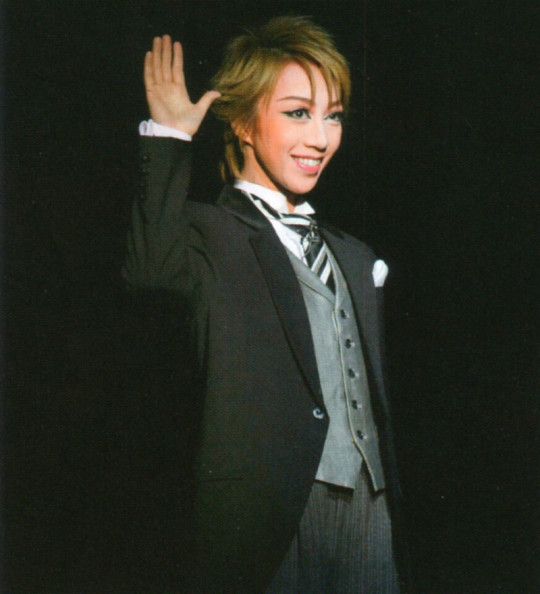
Sujini [Taiou Shijinki Ver.II: Aratanaru Ou no Tabidachi (2009)]
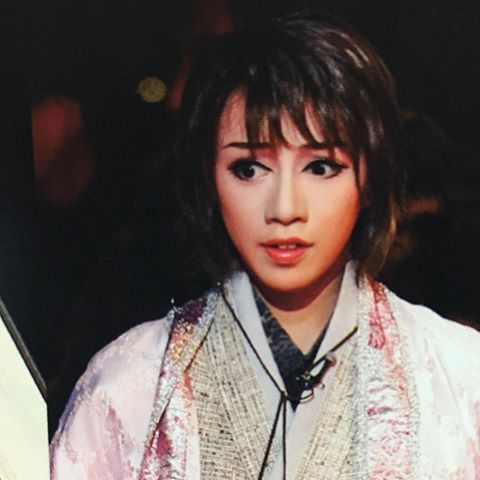
Alexei Alexandrovich Karenin [Anna Karenina (2008)]
⑤ she is an actress for the japanese all female theatre company Takarazuka and specialised as Otokoyaku (男役, male role).
Career:
2012 - current: tsukigumi (月組, moon troupe)
2003 - 2012: hoshigumi (星組, star troupe)
hatsubutai (初舞台, debut/first stage): 'hana no takarazuka fudoki: haru no odori / shinyouru don juan' (2003)
Special:
Takarazuka nibante (2番手, 2nd in position) star
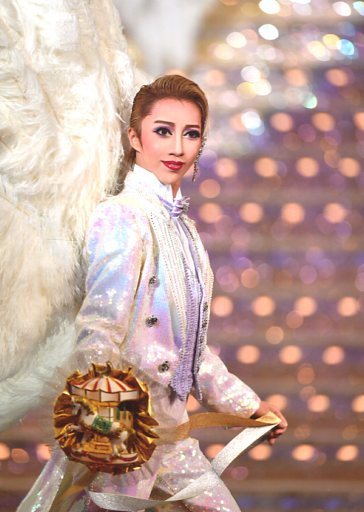
Member of the special group '紅5' (kurenai 5), as 'kurenai black'

⑥ has a cat called ~Luce~ (ルシェ ital. light)
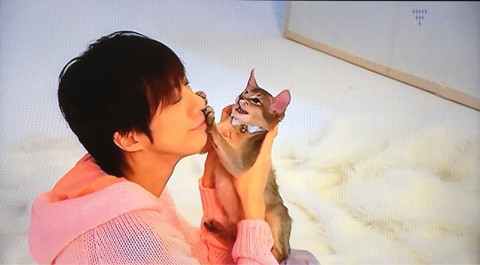
⑦ Leadroles:
first Shinjinkoen lead: Eliyahu Rothschild/Eduard von Autheville [Habsburg no Houken -Tamashi ni Yadoru Hikari (2010)]
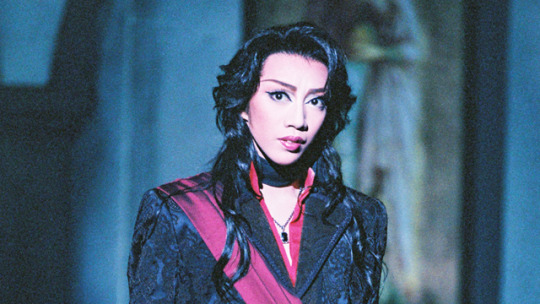
first double lead: Percival Hereford [The Kingdom (2014)]
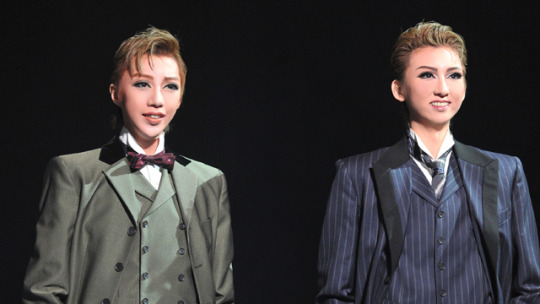
first lead role: Simon [Azure Moment (2017)]
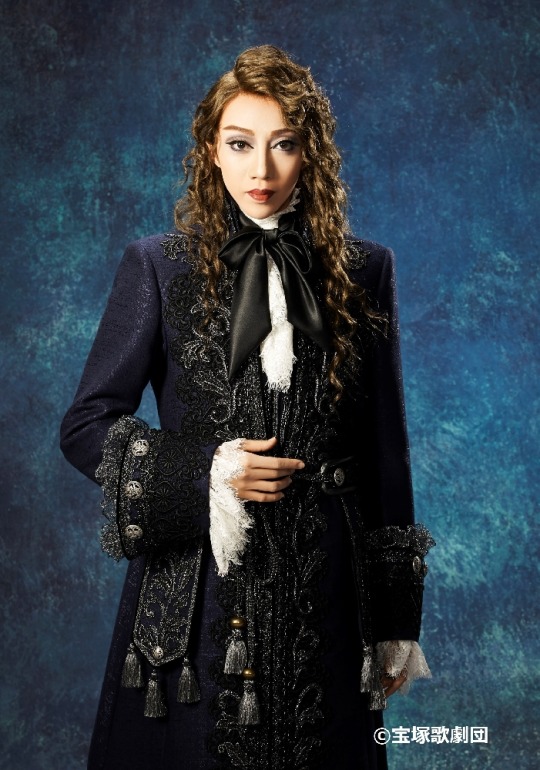
first Dinner Show: Razzle (2017)
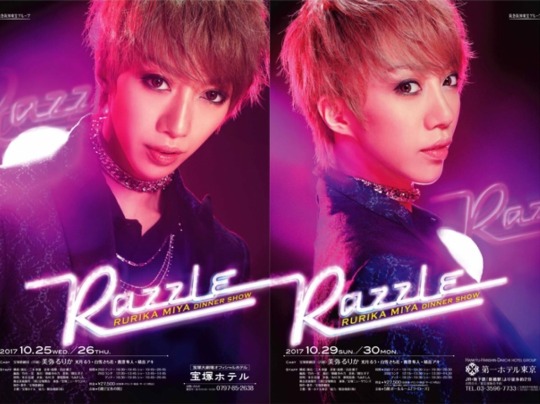
⑧ was the face for POND’S in 2010 (together with Nozomi Fuuto, Asumi Rio, Renjou Makoto & Nagina Ruumi)


⑨ her favorites
color: purple, black, shocking pink, red & silver
food: rice, mochi (soft rice cakes), sweets, McDonalds & washoku
flower: roses & shakuyaku (chinese peony)
word: 千紫万紅 senshibankou (multitude of colors)
wikipedia
takawiki
mydramalist
16 notes
·
View notes
Text
ISTJ Fictional Tropes
Like anything in fiction there are always tropes. This include characters based on their MBTI. Now not all characters that are ISTJ fit into these exact tropes and many fit into multiple as you will note in the examples. The following are major tropes these ISTJ characters have a pattern of falling into and I think they help define their type as a whole in the big picture. Hopefully, this can be almost a quick cheat sheet at times when typing characters.
Traditional Leader

These characters are what we think of as your typical leader. They are the ones you trust because they stick to their center, what they feel is right. They’re usually fiercely loyal. These leaders are service oriented. They don’t see themselves as in control, but as serving a role, one that would exist without them. One they choose out of some sense of responsibility or duty to uphold.
Examples: Commander Lexa (The 100), Captain Ray Holt (Brooklyn Nine-Nine), Queen Elizabeth II (The Crown), Lord Eddard Stark (Game of Thrones), Stannis Baratheon (Game of Thrones), George Washington (Hamilton: An American Musical), Thorin (The Hobbit), Fergus (Pixar’s Brave), Theodon (The Lord of the Rings), Powhatan (Disney’s Pocahontas), Queen Catherine of Aragon (The Tudors), Kercheck (Disney’s Tarzan), King George (Once Upon a Time), Elsa (Disney’s Frozen and Once Upon a Time), and Rick Grimes (The Walking Dead).
Detective/Inspector

Most of these character actually are cops, detectives, inspectors, but that is not exactly what this means. This trope for the ISTJ involves them being excited by their inferior Ne. They love to solve things methodically with Si-Te, but get excited by solving puzzles and investigating using their Ne. These types are interested in the truth and their duty to reveal the truth. They will often be willing to break the law/rules in order to uncover the truth. Their loyalty is to what their role upholds, not to people please. The ISTJ is self sacrificing and is okay being painted negatively if the result leads to the truth and justice.
Examples: Quentin Lance (Arrow), Mako (Avatar: Legend of Korra), Captain Ray Hold (Brooklyn Nine-Nine), Barbara Gordon/Batgirl/Oracle (DC Comics), Joe Swanson (Family Guy), Tina Goldstein (Fantastic Beasts and Where To Find Them), Chloe Decker (Lucifer), Inspector Chester Campbell (Peaky Blinders), James Gordon (Gotham and DC Comics), Bonnie Winterbottom (How To Get Away With Murder), Sara Lance (Arrow and Legend of Tomorrow), Javert (Les Miserables), Shikamaru Naru (Naruto Shippuden), Bartholomew Rusk (Penny Dreadful), Anderson (BBC’s Sherlock), Jim Hopper (Stranger Things), Sam Winchester (Supernatural), Sheriff Stalinski (Teen Wolf), Nobuchika Ginoza (Psycho-Pass), and Rick Grimes (The Walking Dead).
Dutiful Soldier

ISTJ characters that fit this trope are often soldiers, however, it isn’t a requirement to be part of this trope. These ISTJs are dedicated to a cause and remain personally connected and loyal to it. They are highly dependable in performing their duty, whatever that role may be. Their tertiary Fi, often influences them morally to be connected to a cause. They work hard and always follow through on a task. This isn’t about following rules created by a system blindly. These character follow a code and if that means breaking the rules to uphold a personal code, they will do it.
Examples: Allison Argent (Teen Wolf), Takashi Morinozuka (Ouran High School Host Club), Mulan (Once Upon a Time), Norrington (Pirates of the Caribbean), Fujitora (One Piece), Bartholomew Rusk (Penny Dreadful), Yamato (Naruto Shippuden), Mako Mori (Pacific Rim), Athos (BBC’s The Musketeers), Ardeth Bay (The Mummy Film Series), Li Shang (Disney’s Mulan), Mike Wazowski (Monsters, Inc.), Mameha (Memoirs of a Geisha), Natasha Romanoff/Black Widow (Marvel Cinematic Universe), Claire Temple (Netflix’s The Defenders Universe), Sebastian (Disney’s The Little Mermaid), Zazu (Disney’s The Lion King), Cogsworth (Disney’s Beauty and the Beast), Harry/Galahad (Kingsman: The Secret Service), Astrid (How To Train Your Dragon), Dr. Eric Foreman (House, MD), Legolas (The Hobbit and The Lord of the Rings), Maximus (Gladiator), Brienne of Tarth (Game of Thrones), Riza Hawkeye (Fullmetal Alchemist: Brotherhood), Zoe Washburne (Firefly), Danny Pink (Doctor Who), Katana/Tatsu Toro (DC Comics), Starfire (DC Comics), Melinda May (Agents of S.H.I.E.L.D.), Jack Thompson (Agent Carter), Indra (The 100), Maggie Greene (The Walking Dead), and Alex Danvers (Supergirl).
The Specialist

This ISTJ is a master of something. They are so focused and will know every fact about their specialization. Whatever they love is part of their identity, it is what defines them and the use of concrete sensing facts is what helps them relate to their interest. When an ISTJ character is dedicated to a passion, no one knows as much as they do about it.
Examples: Dr. Abigail Griffin (The 100), Hope Van Dyne (Ant-Man), Gray Fullbuster (Fairytail), Sheldon Cooper (The Big Bang Theory), Dr. Caitlin Snow (The Flash), Ross Gellar (Friends), Tatsu Toro/Katana (DC Comics), Riza Hawkeye (Fullmetal Alchemist: Brotherhood), The Swede (Hell on Wheels), Bill Weasley (Harry Potter Series), Doug Guggenheim (House of Lies), Hailey (Mozart in the Jungle), Ben Wyatt (Parks & Recreation), Homura Akemi (Madoka Magica), Uhura (Star Trek Film Series), Lt. Commander Data (Star Trek: The Next Generation), Edward Cullen (Twilight Saga), Natasha Romanoff/Black Widow), and Unalaq (Avatar: Legend of Korra).
Family-Oriented Center

These characters deeply care for their family (not necessarily genetic) and are often found as the grounding center. They may not seem caring like their ISFJ counterparts, but these ISTJ characters are harsh defenders of their families and are often the character others rely on as a steady constant in their lives. When this steady constant falls, many times the family does as well. They are the foundation of their family unit.
Examples: Alexei Alexandrovich Karenin (Anna Karenina), Quentin Lance (Arrow), Ross Geller (Friends), Bob Belcher (Bob’s Burgers), Ned Stark (Game of Thrones), Fergus (Pixar’s Brave), Dean Forester (Gilmore Girls), Mallory Hanson (Grace and Frankie), Maximus (Gladiator), Sophie (Howl’s Moving Castle), Bagheera (Disney’s The Jungle Book), Theodon (The Lord of the Rings), Chloe Decker (Lucifer), Powhatan (Disney’s Pocahontas), Sun Bak (Sense8), Elinor Dashwood (Sense and Sensibility), Fiona Gallagher (Shameless), Red Forman (The ‘70s Show), Edward Cullen (Twilight Saga), Elena Gilbert (The Vampire Diaries), and Maggie Greene (The Walking Dead).
Zealot

The Zealot ISTJ character is often being unwillingly controlled by their inferior Ne. They find the outer world with it’s constant change in meaning separate from their own deep, personal inner meaning is in conflict. They fear change and try to fight it with everything they have. If they admit that the world has this changing meaning outside of themselves they feel everything they believe in is threatened and are unable to cope with such conflict. They refer to their tertiary Fi for comfort and try to morally back their subjective perspective up with subjective judgement. Thereby fueling their own opinion and clinging to their personal identity, unchanging. Many ISTJ villains fall into this trope, but not all are villains. That is important to keep in mind.
Examples: Grinch (Ron Howard’s How The Grinch Stole Christmas), Alexei Alexandrovich Karenin (Anna Karenina), Claude Frollo (Disney’s The Hunchback of Notre Dame), Sheldon Cooper (Big Bang Theory), Javert (Les Miserables), Ross Geller (Friends), Sam Healy (Orange is the New Black), Angela Martin (The Office), Elsa (Disney’s Frozen), P.L. Travers (Saving Mr. Banks), Dean Forester (Gilmore Girls), Lord Voldemort/Tom Riddle (Harry Potter Series), The Swede (Hell on Wheels), Nessarose (Wicked: The Life and Times of the Wicked Witch of the West Novel), Theo Galavan (Gotham), and Unalaq (Avatar: Legend of Korra).
The Cynic

The ISTJ cynics are often mistyped because they don’t really believe in anything. They are often misread as ISTP to be honest. But the Cynic ISTJ is indeed, very ISTJ. They are some of the most ultimate realists, not seeing the light at the end of the tunnel. They usually have life experiences of pain that has formed their perception of reality. Their dominant Si seeing the facts, not fanciful ideals. Their tertiary Fi not seeing or growing up with that feeling that they or anyone else is a special snowflake. They often are lost, without a cause, not trusting those with big ideals. They see things as they are and nothing more. They are the bluntest ISTJ filled with some of the most ironic humor. They are usually disappointed with their lot in life.
Examples: Mai (Avatar: The Last Airbender), Chas Chandler (Constantine), Helga Katrina Sinclair (Disney’s Atlantis: The Lost Empire), Phantom Stranger (DC Comics), Gwynne (Galavant), Mad-Eye Moody (Harry Potter Series), Suzana Ayuwaza (Maid-Sama), Shikamaru Naru (Naruto Shippuden), Dinesh (Silicon Valley), and Princess Kwenthrith (Vikings).
341 notes
·
View notes
Conversation
Zodiac signs as Anna Karenina Characters
Cancer:Darya Alexandrovna Oblonskaya (Dolly)
Leo:Princess Shcherbatskaya
Virgo:Alexei Alexandrovich Karenin
Libra: Stepan Arkadyich Oblonsky (Stiva)
Scorpio: Anna Arkadyevna Karenina
Taurus: Konstantin Dmitrich Levin
Aquarius: Alexei Kirillovich Vronsky
Pisces: Ekaterina Alexandrovna Shcherbatskaya (Kitty)
#zodiac#zodiac signs#aries#taurus#gemini#cancer#leo#virgo#libra#scorpio#sagittarius#capricorn#aquarius#pisces#anna Karenina#count vronsky#levin#leo Tolstoy
5 notes
·
View notes
Video
youtube
"An impure love is not love to me”
#anna karenina#Konstantin Dmitrievich Levin#Alexei Alexandrovich Karenin#anna karenina Dom is my fave Dom#annie watches
2 notes
·
View notes
Text
Karenin: Why didn’t you come to couples therapy today?
Anna:
Anna: I did.
Karenin: No you didn’t. You just sent Princess Tverskaya.
Anna: No, that was me.
Karenin: Obviously I know that wasn't you. Princess Tverskaya told me you paid her 25 roubles to go in your place
#russian lit#literature#incorrect quotes#source: gayle#anna karenina#anna arkadyevna karenina#alexei karenin#alexei alexandrovich karenin#anna x karenin#leo tolstoy
42 notes
·
View notes
Quote
'Yes, time goes on; and time, which cures everything, will restore the old conditions,' said Karenin to himself.
Alexei Alexandrovich Karenin, (from Anna Karenina by Leo Tolstoy)
28 notes
·
View notes
Quote
'I have no right to enter into all the details of your feelings, and generally I consider it useless and even harmful,' Alexei Alexandrovich began. 'Rummaging in our souls, we often dig up something that ought to have lain there unnoticed.'
Anna Karenina, Leo Tolstoy
#anna karenina#leo tolstoy#tolstoy#alexei alexandrovich karenin#alexei karenin#russian literature#literature
74 notes
·
View notes